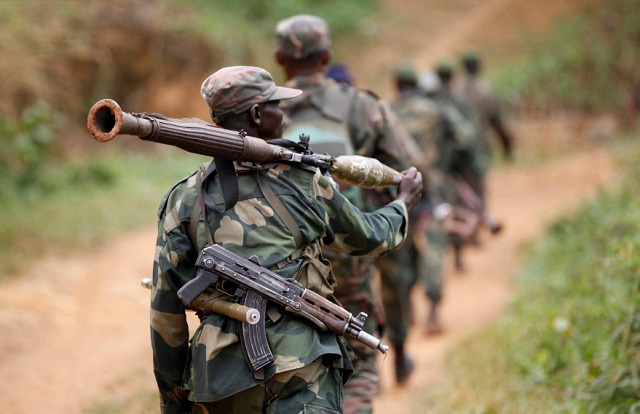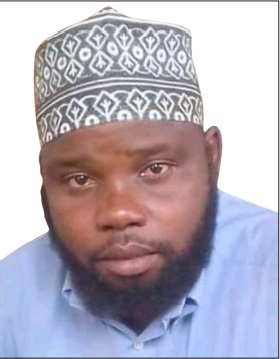
Human rights defenders condemn security forces for extrajudicial killings
| MUBATSI ASINJA HABATI | On Nov. 17, social media sites were awash with grisly pictures of four men who had been executed and dumped on the roadside near Kisege trading Centre in Ntoroko District, in southwest Uganda. Eye witnesses say the four bodies were dumped by people who were driving an omnibus vehicle commonly called “drone”.
Security operatives driving drone vehicles have become notorious for abducting and torturing people, especially suspected to be opposing President Yoweri Museveni’s government. Until recently, supporters of opposition parties, especially the National Unity Platform (NUP), have been the victims. But suspected terrorists appear to be the number one target now.
After dumping the bodies at Kisege, the men in the drone reportedly drove to a nearby police station and identified themselves as security operatives. Later in the day, the police issued a statement indicating that the dead men were collaborators of the Allied Democratic Forces (ADF). The police identified the four as Atindya Yasin also known as Senabulya Dan, Musa Byaruhanga Bahemuka, Joshua Mathias Turikimanya, and Joseph Bagonza.
The Uganda Government has accused the ADF rebels of being behind the recent spate of bomb attacks that have targeted some areas in Kampala; including the November 16 twin bombing near the Central Police Station and Parliamentary Avenue. The rebels are said to have their bases in the Rwenzori Mountains in Eastern Democratic Republic of Congo.
Sources told The Independent that Atindya was at times posing as an informant of Uganda security personnel in Bundibugyo and that he implicated many people during the arrest of Rwenzururu Kingdom royal guards.
Other accounts indicate the Atindya was a former ADF rebel who had been abducted with several boys in 1997 in Bundibugyo District by the rebels. The boys he had been abducted with were killed by the ADF but Atindya survived. He was later rescued from ADF by the UPDF and reunited with his family.
“Since his rescue, many village mates of Atindya believed he worked with government in security circles,” said one source adding that: “but it appears he never stopped working for ADF.” It is not clear if the security operatives knew that Atindya had turned into a double agent.
On that same day, in Wakiso which is over 300km from Ntoroko, at Nsangi, security personnel gunned down a man -Sheikh Abbas Mohammad Kilevu at his home in Kyengera Town Council. Sheikh Kilevu was accused of recruiting for ADF. Police claimed he was shot as he was resisting arrest but family members said he had been handcuffed while inside the house and was led outside implying he had been subdued.
“The soldiers slapped our father and marched him outside the house in cuffs. They told us to go back to our bed to sleep. Soon we heard bullets outside our house and we saw our father down,” one of Kilevu’s teenage daughters narrated on one of the local television stations.
Speaking after the recent twin bombings in Kampala, President Museveni echoed the police excuse of shooting the suspects for resisting arrest. The police claim it is not their desire to kill suspects and to prove that since the attempted assassination of Gen Edward Katumba Wamala in June, over 80 suspects have been arrested and 6 killed while trying to flee or resisting arrest.
In the 2021 general elections, the killing of persons suspected to have caused trouble in the November 18, 2020 protests that left over 50 people shot dead by plain clothes security forces left many people upset at the callous manner in which suspects were being handled with disregard to the rule of law.
On December 30, 2020 security forces in Kampala shot dead Isaac Ssenyange, a boxer commonly known as Zebra, a resident of Bwaise. A day later, President Yoweri Museveni tweeted: “When I heard of the death of Isaac Ssenyange alias Mando Zebra, a former Bombers captain, I telephoned his wife and she narrated to me the events. Zebra was meant to meet me; he was an NRM supporter who was doing so much for us.
“Zebra’s wife told me people in police uniform came to pick Zebra but he jumped over the wall and could have met another group who shot him. At first, I thought they were thugs disguising in uniform, but as I continued investigations, I found out that Zebra was killed by security personnel.”
Museveni apologised on behalf of security personnel and vowed to keep on the case and would bring every finding to the knowledge of his family and the murderers will be dealt with accordingly.
Since then no member of the security forces has been brought to book.
The killing of Ssenyange has hallmarks of extrajudicial killings because an eye witness account says he had raised his hands up -a sign of surrender -but he was shot nine times.
Police spokesman, Fred Enanga, insists the killed suspects are usually either resisting arrest or trying to escape. President Museveni in his November 20, 2021 defended the police shooting of suspects who resist arrest.
 However, human rights defenders have protested against the extrajudicial killings.
However, human rights defenders have protested against the extrajudicial killings.
“Basically, the security operatives in this country shoot to kill, because they can, because the elite have allowed them to, and because that policy is incentivised by the state — the President, Parliament and Judiciary through command, rewards, wilful blindness, and strategic silence,” says Isaac Semakadde, a human rights defender and lawyer.
He says Uganda security personnel kill suspects instead of arraigning them in courts of law because there is weak rule of law in the country.
“The consequences are illusory, because there is no respect for rule of law by those ‘in the system’,” Semakadde argues.
He thinks this strategy of killings suspects is not effective in solving insecurity issues the country is grappling with.
“Insecurity in Uganda is formented by the state. The so-called ADF people the state is killing are its own operatives, or somewhat entangled with the corrupt and fractured state intelligence and security apparatus. This is a routine extermination of disposable agents,” says Semakadde.
Before he was killed, it is alleged that Zebra Ssenyanga had disagreed with security operatives on how to handle the threat from the ghetto youth that were supporting NUP. It is said that when the security operatives learnt that Zebra was scheduled to meet Museveni, they panicked that he would expose them and thus they eliminated him days before the meeting.
Human rights defenders argue that killing suspects disrupts investigations and denies the public crucial evidence. They advise that any shooting at resisting suspects should be aiming at subduing them; for instance shooting the leg.
“If people have been committed crimes they should be arrested and handed to court so that we get to know how they planned their crime,” says Charles Peter Mayiga, the Kattikiro of Buganda, who is a top-notch lawyer. He punches holes in the strategy of executing suspects.
“Extra judicial killings are not good. We have heard some have been killed while handcuffed,” he says, “What will children of those killed summarily think when they grow up?”
The Kattikiro came short of accusing Uganda security forces of religious and tribal intolerance. Sometimes the security officers have been accused of relying and acting on wrong and biased intelligence that based on tribal or religious witch-hunt.
“It’s okay to arrest anyone if they are suspected members of ADF. The reason for making arrests is to interrogate and get leads. Why then should a suspect be killed before the above? The law here is clear: it is court that proves one guilty or innocent. Killing suspects only instils fear but does not solve the problem,” a source from police told The Independent.
When President was being sworn-in for the first time on January 26, 1986, in his inaugural speech to the nation at the steps of parliament, he made a pledge against extra-judicial killings.
“The security of the people of Uganda is their right and not a favour bestowed by any regime,” he said, “No regime has a right to kill any citizen of this country.”
Museveni’s statement meant that, under his government, no person in Uganda – including government security operatives – had the right to kill any human being without due process. But 35 later, Museveni now says police or security forces can shoot to kill suspects that resist arrest.
****
 The Independent Uganda: You get the Truth we Pay the Price
The Independent Uganda: You get the Truth we Pay the Price



